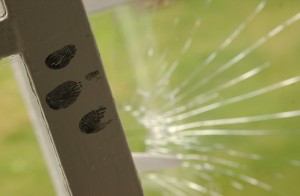So you bought an alarm system, what kind of maintenance and service should you do?
Really, you won’t need to do too much. It should work flawlessly for quite some time. The first thing to go will be batteries. All systems will have to have their system battery replaced after 3 to 5 years. When the battery is low, the keypad will notify you as will the central station. The batteries for most alarm systems in service today are 12 volt and 4 to 7 amp hour. Newer graphic self-contained systems have different smaller batteries – for example, the 2Gig Go Control has a 7.2 volt back up battery. All batteries should give you 24 hour back up. It is not a bad idea to schedule replacement of your battery every 3 years to preempt any possible issues.
If you have a wireless alarm system, you will also need to replace the batteries in the various devices such as door and window transmitters, wireless motion detectors, wireless glass break detectors, wireless carbon monoxide detectors, wireless smoke detectors, key fobs, panic buttons, and other wireless devices. Most of the new devices use lithium batteries, from CR123 3 Volt lithium batteries to lithium watch sized batteries. The smaller the device, the smaller the battery. Typically the bigger batteries last longer, 3 years plus, while the watch type batteries last 2 years plus. Devices that are used most often, like entry doors, drain quicker. On the newer systems, the keypad tells you which transmitter has a low battery, making replacement easy.
Make sure your alarm company shows you how to change the batteries during the installation. You should also get a list of the batteries required for all the various devices you have so you don’t have to scramble to find out when they are low. If you choose not to replace your own batteries, the alarm company should be happy to replace them for you.
Older systems use typical alkaline batteries, 9 volt, AAA and AA are common. These need to be replaced more often. Many older systems don’t tell you when the batteries are low so regular replacement is necessary.
Other than changing batteries, not much else is necessary. Make sure devices such as motion detectors and smoke detectors are clear of spider webs and that’s about it.
If installed and programmed correctly, your alarm system should monitor all parts and devices on the system, as well as services it is connected to, like power, telephone, and cellular. If any of these systems go down, your alarm system should alert you to that fact. The first reaction is to think that there is something wrong with your alarm system, when in reality it is working correctly. It is supposed to tell you when it is compromised when a service it relies on is not working properly.
Even though the system monitors itself, testing the alarm system is something that you should regularly do. You depend on your alarm system and you should make sure that it is working properly all the time. The best way to test the system is as follows: Call the central station and put the system on test. Arm the system and then trip a zone. Reset the alarm and then call the central station to make sure they received the right signal. Next week put it back on test and trip the next zone. Go clockwise around your house and you will eventually check all your devices. It is worth the effort to protect your home and family.
If you live in Central or Northern New Jersey and would like information on any of the topics discussed above, or if you would like us to perform a Home Safety and Security Audit, absolutely free, please call 800-369-3962.
 contributes, gets along, and the sun is always shining, right? Unfortunately, just as the weather is unpredictable, so is human nature. Criminals don’t care if your neighborhood is considered safe, if they see vulnerability, they see opportunity. Don’t fool yourself into thinking your home is safe because of your surroundings. Statistically,
contributes, gets along, and the sun is always shining, right? Unfortunately, just as the weather is unpredictable, so is human nature. Criminals don’t care if your neighborhood is considered safe, if they see vulnerability, they see opportunity. Don’t fool yourself into thinking your home is safe because of your surroundings. Statistically, 

